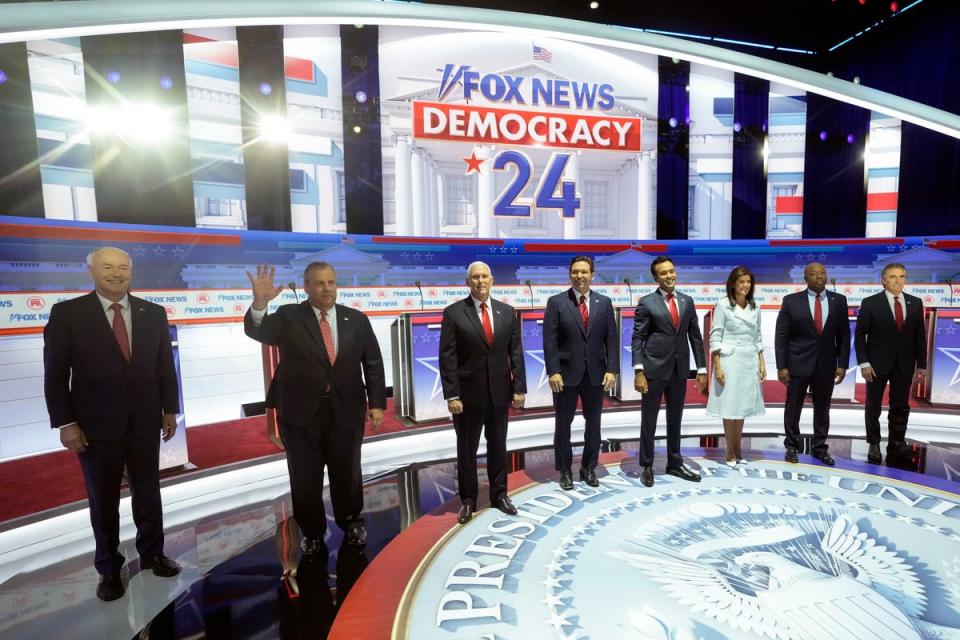Trump will skip second GOP debate to give speech to striking workers
Donald Trump is expected to skip the upcoming second Republican presidential primary debate and speak to a crowd of union workers in Detroit amid the ongoing auto strike, advisers of the former president told The New York Times.
The snub comes after Mr Trump skipped the first GOP debate of the season last month, chosing instead to sit down with former Fox News anchor Tucker Carlson for an in-depth interview broadcast on X, formerly known as Twitter.
The former president, who stands well ahead of the crowded Republican field in the polls, has downplayed the importance of the debates.
“The public knows who I am & what a successful Presidency I had, with Energy Independence, Strong Borders & Military, Biggest EVER Tax & Regulation Cuts, No Inflation, Strongest Economy in History, & much more,” he wrote on Truth Social in August. “I WILL THEREFORE NOT BE DOING THE DEBATES!”
The lack of a debate presence has done little to impact his front-runner status.
A national average of polls compiled by FiveThirtyEight shows Mr Trump with more than four times the support of his closest rival, Florida governor Ron DeSantis, with a projected 55.5 per cent support among Republican voters.
The union speech could be an attempt to further peel off support from blue collar workers, a traditional bloc of support for Democrats.

Nearly 150,000 auto workers represented by the United Autoworkers went on strike last week, accusing the “Big Three” Detroit automakers of failing to offer wage increases that’ve kept pace with executive compensation and company profits.
“For the last 40 years, the billionaire class has been taking everything and leaving everybody else to fight for the scraps,” UAW president Shawn Fain said in a speech last week. “We are not the problem. Corporate greed is the problem.”
After the 2008 financial crisis, Detroit automakers underwent major restructuring as part of the federal financial bailout.
Part of that restructuring included major changes to working conditions including a two-tiered, tenure-based pay schedule, an increase in temporary workers, and the end of defined-benefit pensions — all issues the union is hoping to tackle with its set of demands.
“Part of what’s motivating [wage increases] is an interest in the workers sharing in the success that the company has been experiencing, and share in it in a way that seems commensurate with the way that the corporate leadership has shared in that success,” Sharon Block, executive director of Harvard Law School’s Center for Labor and a Just Economy, told Vox. “When you think about it as an increase that represents a fair share of profits from three very profitable companies of late, it may look different.”


